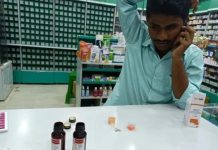By Makutu Manneh
The government of the Gambia in partnership with UNFPA, UNAIDS and UNESCO have commenced a three-day national consultation forum on reproductive health services, Sexual Gender Based Violence (SGBV) prevention, information and education, unintended pregnancy, as well as STDs, HIV and protection for adolescents and young people.
The national consultation is part of a process leading to the regional high-level commitment for healthy, striving and empowered adolescent girls and young people in West and Central Africa.
The Regional high-level commitment is in line with the pledges made by African leaders as part of agenda 2063 which is centered on sustained investment in education and elimination of gender disparities on all levels.
The national consultation is part of a process leading to the regional high-level commitment striving for a healthy and empowered adolescent girls and young people in West and Central Africa.
The Regional high-level commitment is in line with the pledges made by African leaders as part of agenda 2063, which is centred on sustained investment in education and elimination of gender disparities on all levels.
Luomi Williams, representing the Minister of Basic and Secondary Education (MoBSE), said countries in West and Central African regions aim to provide adolescents and young people with knowledge, attitudes, skills and services that will enhance their health, wellbeing and empowerment.
“Adolescent girls are amongst the most vulnerable groups and must always be protected. Adolescent fertility comprises 15.9% of total fertility and is therefore linked with certain health and socio-economic problems,” she said.
She disclosed that sexuality education has been identified as a key priority area in empowering adolescent girls to make informed choices and reaching their full potential in school and in their lives.
Ndeye Rose, UNFPA Representative, said to reach the sustainable development goals and to realise the fulfillment of young people’s potential, there is a need for an accelerated approach to build a safer world for women and girls, especially adolescents.
The UNFPA top diplomat said the regional commitment based on national pledges will help to create a more enabling environment for education programmes, meant to enhance the health of adolescents and young people.
“The Gambia has registered significant progress in closing the gender gap in primary education, with 99% of girls finishing primary school as compared to 90.4% of boys. However, only 48.2% of girls went on to complete secondary school. At the main university in Gambia, 42% of potential 2022 graduates were females compared to 58% males,” she said.
“One in five young women aged 15-19 years are currently in union, compared with less than 1% of men in the same age group.”
The UNFPA Representative added that early marriage impedes adolescent girls and young women’s potential to grow to their full potential.
Ms. Rose alluded that there is limited access to reproductive health information and youth friendly services and that this is contributing to teenage pregnancy.
She further said the aforementioned statistics show how significant it is to ensure comprehensive sexuality education is at the reach of young people.




















